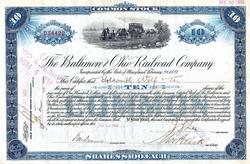Par Value: How Low Can You Go?
 What is Par Value?
What is Par Value?
When referring to shares of stock in a Delaware company, Delaware par value is the bottom or lowest limit set to the value of a share of stock in a corporation. A share may not be bought, sold or traded for less than the par value. Simply stated, if the par value of a share is $1.00, then it cannot be issued to an investor for less than a dollar, paid for in funds or services.
The par value of shares sets only a bottom limit for your business, but the board of directors may set the price of stock at any amount above par. Let’s say your par value is $.01 but the board of directors sells stock to an investor for $5.00 per share. This is perfectly legal. These two values are the par value and the market value.
The board may ask any price and the investor pays what the market will bear. But keep in mind that you are selling some percentage of your corporation with each share you issue or sell.
If you’ve shopped around for an online incorporator, you might have noticed that they will often suggest setting the par value of share at zero. Why do they do this? Realizing that many people who are just starting their corporations are small start-up companies, incorporators suggest low to zero par value so that the owners or initial shareholders will not need to make substantial investments into the corporations in order to own their companies at the time of organization.
In the case of "no par" shares, they may be issued to the shareholders without the exchange of funds, goods, or services. Having no par value will not restrict you in selling your shares to investors at the price determined by the board, and accepted by the investor, just like shares that do have a par value.
Ultimately, a share is worth what an investor is willing to pay for it.
Even though no par stock sounds great, it is not for everyone. In many cases, corporations will want to assign a par value so that an investment (whether it be funds or services) is required in order to own a share in the company.
This will help a corporation generate investment revenue for growth and/or help to recoup startup costs. Also, some states may have limitations to the number of shares that may be offered at no par, or charge additional filing fees and/or taxes based on the number of shares authorized at zero par. For instance, Delaware’s Division of Corporations will allow up to 1,500 shares of no par stock before you will begin to experience additional filing fees. In addition, franchise taxes for large amounts of no par stock (in excess of 5,000 authorized shares) can prove to be very expensive.
While the par value of a share is often unrelated to is actual value, its still important to acknowledge as a business owner. If you have concerns about the impact of the number of authorized shares or the impact of the Delaware par value on your filing fees or franchise tax in Delaware, please feel free to contact us via phone (800-345-2677) or email.
*Disclaimer*: Harvard Business Services, Inc. is neither a law firm nor an accounting firm and, even in cases where the author is an attorney, or a tax professional, nothing in this article constitutes legal or tax advice. This article provides general commentary on, and analysis of, the subject addressed. We strongly advise that you consult an attorney or tax professional to receive legal or tax guidance tailored to your specific circumstances. Any action taken or not taken based on this article is at your own risk. If an article cites or provides a link to third-party sources or websites, Harvard Business Services, Inc. is not responsible for and makes no representations regarding such source’s content or accuracy. Opinions expressed in this article do not necessarily reflect those of Harvard Business Services, Inc.
There are 2 comments left for Par Value: How Low Can You Go?
Sean Byrne said: Wednesday, September 2, 2020Subscribe
HBS Staff replied: Wednesday, September 2, 2020Hi Sean, you can subscribe to our blog right here: https://www.delawareinc.com/subscribe-to-blog/
John M Faulkner said: Wednesday, September 2, 2020Interesting, I really like this article. Over the last 3 years I have invested a little over $ 25 k in my company and have had Harvard Business Service as my registered Agent sine I retired in June 2017 from Northrop Grumman. For the time from 1989 when I purchased MFHE my 3 other partners I had the company in just a maintenance mode so I did not have a conflict of interest with Northrop Grumman. During that time 1998 to 2017 June I put in on an average of $1000 per year to do franchise fee filing and agent Delaware charges and keeping up with quarterly state requirements... Currently we have a 1000 share stock issuance. I brought the company assets for $4300 in 1998.Total Investment around $47.3 k. My question is should I ir how can i get more shares issued before I set the par value in order to get the par value down to $2 or $3.a share?
HBS Staff replied: Wednesday, September 2, 2020Here's an article that gives you some info on adding stock and setting par value: https://www.delawareinc.com/blog/stock-amendments-in-a-delaware-corporation. Usually, par value is not amended as it simply defines the minimum price the stock can be sold for.
